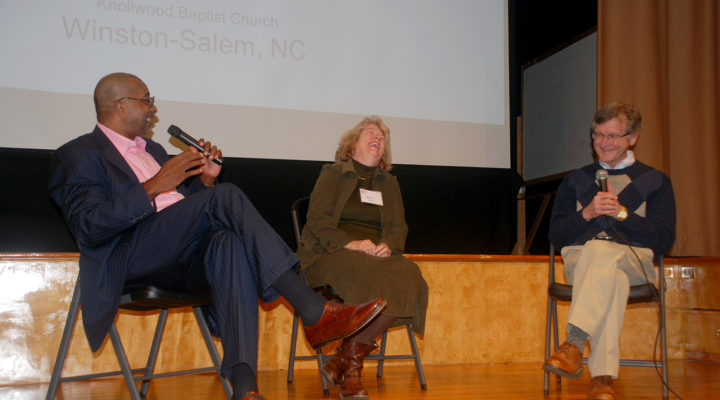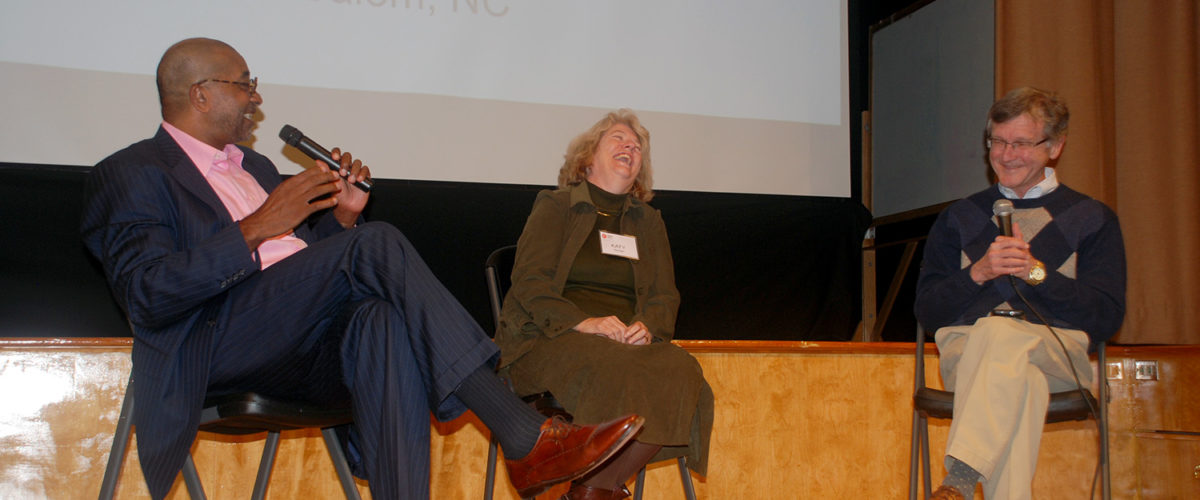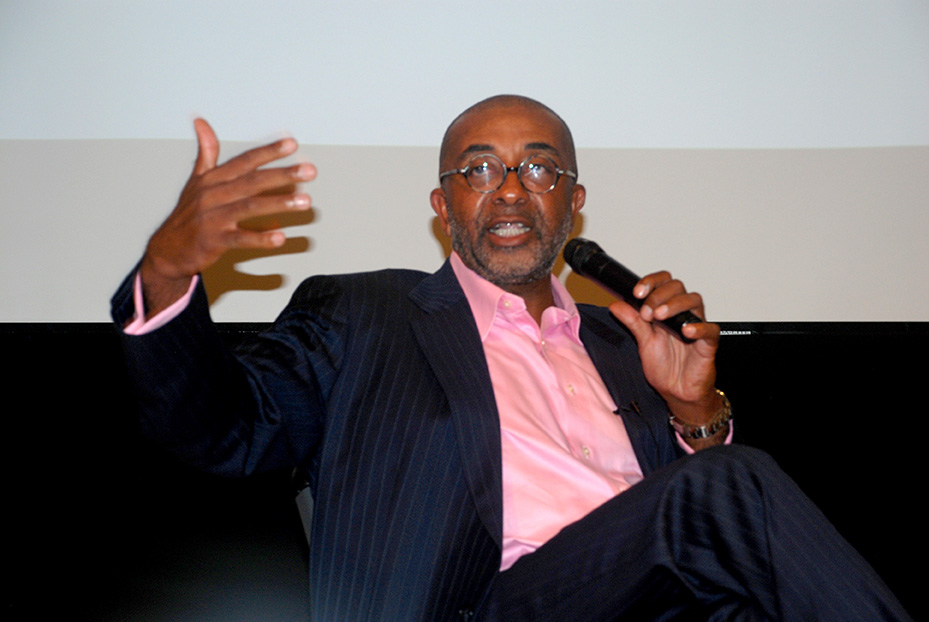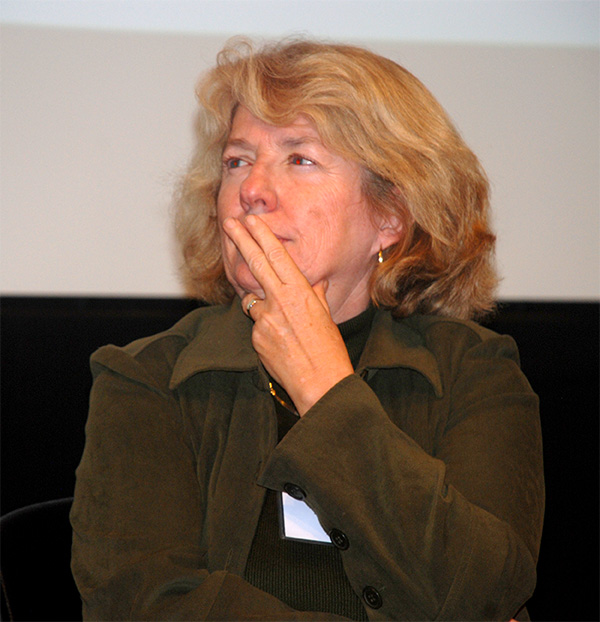While sociologists slice the population into thinner and thinner samples for examination, columnist and radio host Byron Williams says the most neglected — and dangerous — segment is “the Bob Dylan demographic.”
Quoting a famous Bob Dylan song, Byron said, “When you have nothing, you have nothing to lose.”
When that “growing demographic, that cuts across race, gender, orientation and zip code” feels they have nothing to lose, then neither the civility of discourse, nor “the values this country was founded on” will matter to them, he said.
Williams was participating in a panel discussion about how churches can bridge the post-election season, and try to heal the rifts some congregations are feeling in a sharply divided electorate.
Katy Harriger, chair of the politics and international studies department at Wake Forest University, said she “actually despairs at where our civic discourse is. It matters how we talk to each other. “
Panelists joined 60 others during a Baptist News Global dinner held at Knollwood Baptist Church in Winston-Salem, N.C.
Williams, who also writes for the Huffington Post, said “dissent is the oxygen of democracy,” and “we’re in a pretty bad place” if we demonize those who hold a position different from our own.
“Dissent is the oxygen of our democracy. Without it we will choke on the fumes of our own megalomania.”
Americans who “want change with comfort” are demonizing those who publicly protest, but Williams said, “Dissent is the oxygen of democracy.”
“There’s a difference between loving the country and being naïve about the country,” he said. “Loving the country may mean dissent. We want change with comfort. Change only comes with discomfort.”
“Dissent is the oxygen of our democracy,” Williams said. “Without it we will choke on the fumes of our own megalomania. Change always starts as the minority opinion.”
Harriger and Williams encouraged deliberation, and finding a place and time where “instant reaction” to the news is not necessary.
But the Wake Forest professor said, “There is such a thing as righteous anger about injustice, that is not very deliberative. I try to listen to what the angry person is angry about. Is it about justice, or trying to make people’s lives better, or is it about self interest?”
Harriger suggested the Church can “provide that place and time of deep reflection, which is counter cultural to the extreme.”
She has students put away their phones for 20 minutes a day to separate themselves from the inundation of information that floods over them. When they talk about the experience in class, students express “high anxiety when they weren’t connected to it.”
Williams, a former pastor, said, “Sometimes the answer really is ‘I don’t know’ and the Church gets into trouble when we go down the rabbit hole of providing answers that aren’t really answers.”
To understand each other and to promote civil discourse, Harriger said it is important to listen to each other’s stories. “Have deliberative dialog,” she said.
Williams, who called “certainty, the younger sibling of arrogance,” said much of the public discourse is based on being certain, and “we’ve made nuance a weakness rather than the strength I think it is.”
Certainty in current discourse says, “I am the sole possessor of the truth. I don’t care what you say, you’re wrong,” he said.
Harriger said while there is a variety and proliferation of tools for gaining instant information, “the problem is we’re not teaching anyone how to use it.”
She encouraged people not to rely on a single source, to use reason, and fact check, which can be done now “almost instantaneously.”
Real social change requires making and nurturing deep relationships,” she said.




